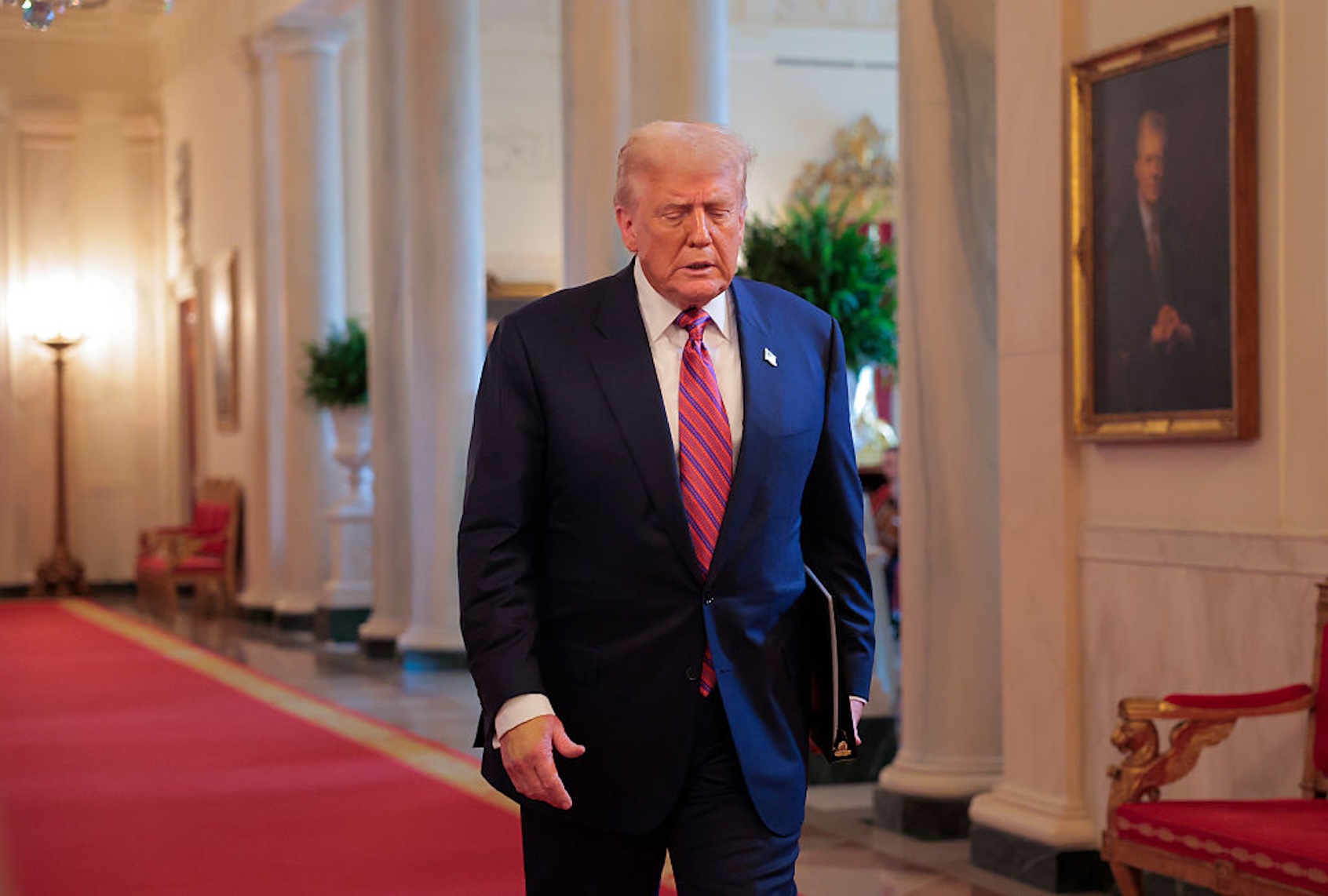Politics
Trump Shares False Claim About Obama’s “Obamacare Royalties”

President Donald Trump recently amplified a satirical claim suggesting that former President Barack Obama has received royalties from the federal government for the use of the term “Obamacare.” This claim, which surfaced on the online publication known as the Dunning-Kruger Times, was shared with Trump’s 11 million followers on Truth Social, despite its clear fictional nature.
The post claimed, “DOGE halts yearly payments of $2.5 million to Barack Obama for ‘royalties linked to Obamacare,’” stating that Obama has allegedly collected a total of $40 million since 2010. However, as of now, the term “Obamacare” is not trademarked, and there are no actual royalty payments being made to Obama.
The Dunning-Kruger Times, which takes its name from a psychological phenomenon where individuals overestimate their knowledge, explicitly states that its content is fictional. On its About page, the site clarifies, “Everything on this website is fiction. It is not a lie, and it is not fake news because it is not real. If you believe that it is real, you should have your head examined.” The publication emphasizes that any resemblance to actual people or events is purely coincidental.
Trump’s post, which he accompanied with an exclamatory “Wow!”, was met with varying reactions, showcasing the polarizing nature of his social media presence. Critics have pointed to this instance as part of a broader trend where misinformation gains traction online, particularly among political figures and their followers.
The sharing of such satirical content raises concerns about the responsibilities of public figures in the digital age. With platforms like Truth Social allowing for rapid dissemination of information, the potential for misunderstanding or misrepresentation increases significantly.
As discussions around health care continue to shape political discourse, the impact of misinformation on public perception and policy cannot be understated. This incident serves as a reminder of the need for critical engagement with information, especially when it comes from unofficial sources.
The situation underscores the importance of verifying claims before sharing them, particularly in a political context where the stakes can be high. As more individuals turn to social media for news, the line between fact and fiction can often blur, leading to confusion and mistrust among the public.
-

 Science4 weeks ago
Science4 weeks agoIROS 2025 to Showcase Cutting-Edge Robotics Innovations in China
-

 Politics3 weeks ago
Politics3 weeks agoJudge Considers Dismissal of Chelsea Housing Case Citing AI Flaws
-

 Lifestyle4 weeks ago
Lifestyle4 weeks agoStone Island’s Logo Worn by Extremists Sparks Brand Dilemma
-

 World4 weeks ago
World4 weeks agoBravo Company Veterans Honored with Bronze Medals After 56 Years
-

 Health4 weeks ago
Health4 weeks agoStartup Liberate Bio Secures $31 Million for Next-Gen Therapies
-

 Science4 weeks ago
Science4 weeks agoArizona State University Transforms Programming Education Approach
-

 Health4 weeks ago
Health4 weeks agoTop Hyaluronic Acid Serums for Radiant Skin in 2025
-

 Sports4 weeks ago
Sports4 weeks agoYamamoto’s Mastery Leads Dodgers to 5-1 Victory in NLCS Game 2
-

 Top Stories4 weeks ago
Top Stories4 weeks agoIndonesia Suspends 27,000 Bank Accounts in Online Gambling Crackdown
-

 Sports4 weeks ago
Sports4 weeks agoMel Kiper Jr. Reveals Top 25 Prospects for 2026 NFL Draft
-

 Lifestyle4 weeks ago
Lifestyle4 weeks agoMary Morgan Jackson Crowned Little Miss National Peanut Festival 2025
-

 World4 weeks ago
World4 weeks agoHoneywell Predicts Record Demand for Business Jets Over Next Decade









